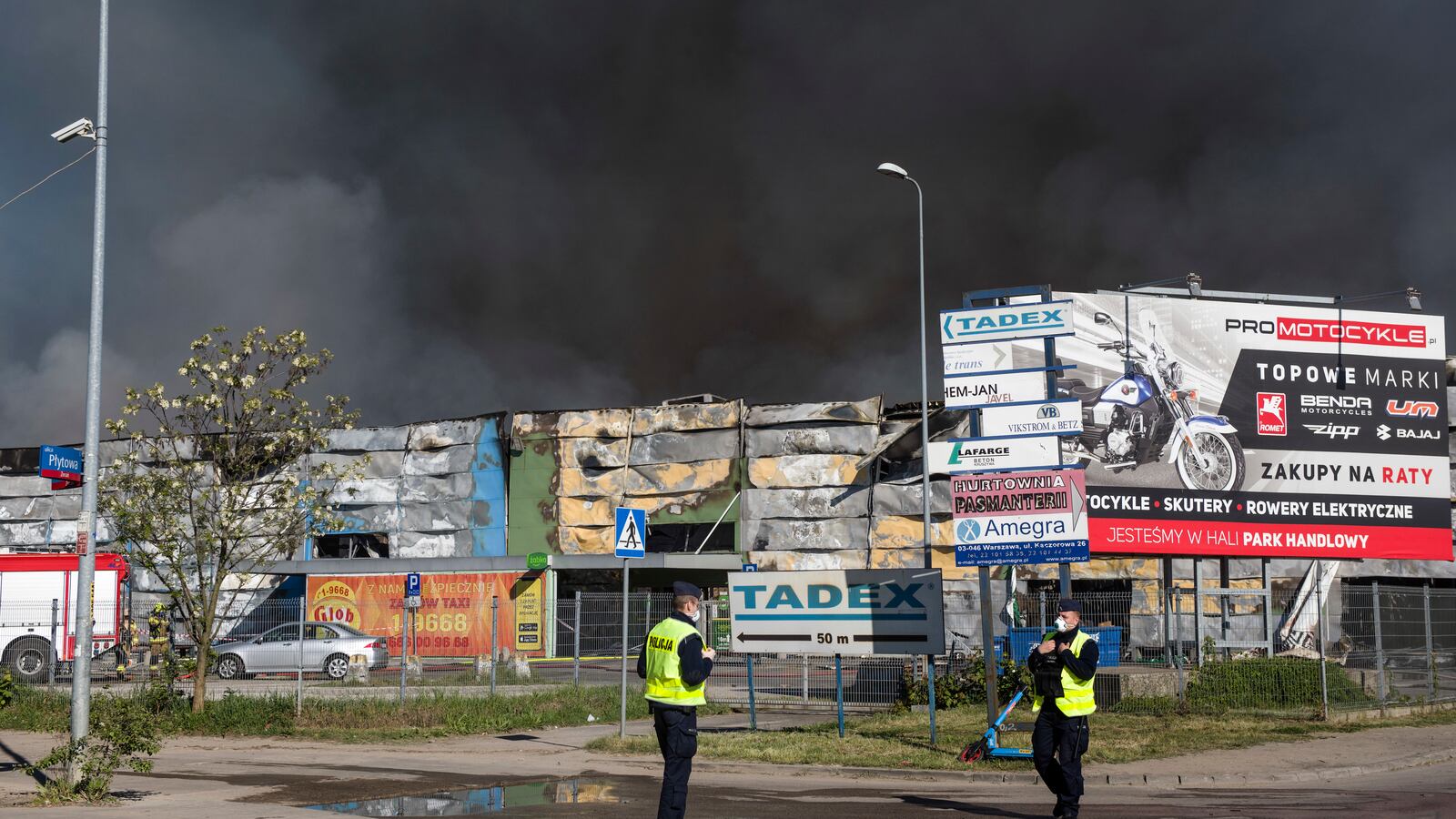Three more arrests have been made as the Kremlin apparently outsources its dirty work to down-on-their-luck young men across Europe who are happy to set a fires in exchange for a few thousand euros.
The latest figures in what appears to be a sprawling sabotage scheme are two Belarusian men in their 30s and a 40-year-old Polish man, all of whom, Polish prosecutors say, were hired to carry out sabotage for Russian intelligence.
Sources cited by the Polish newspaper Rzeczpospolita say the three men were offered 10,000 euros ($10,830) for each facility set ablaze. Investigators say they planned to set fire to shopping malls, restaurants, and construction warehouses in three different cities but were stopped before they could.
Polish Prime Minister Donald Tusk said earlier this month that nine other suspects had been detained for carrying out “beatings, arson and attempted arson” on Russia’s orders.
Seemingly random fires have broken out one after another in recent weeks, destroying Warsaw’s largest shopping center, scorching an IKEA in the Lithuanian capital of Vilnius, and tearing through a Ukraine-linked business in London.
In all cases, investigators suspect the fires were the result of Russian spies pulling the strings of hired arsonists. Mysterious fires have also broken out at sites in NATO countries Germany and Denmark.
Security services across Europe have warned that the blazes are likely part of a wider Russian sabotage campaign that aims to cause fear and chaos and, ultimately, destabilization. That campaign appears not to be limited to arson: Two suspects arrested last fall for spray-painting Stars of David on a Paris school reportedly told investigators they were paid to do so by a man in Russia.
A Ukrainian refugee interviewed by The Wall Street Journal earlier this month told the newspaper he’d been ensnared in Russia’s sabotage-by-proxy scheme after seeing a job advertised on the popular Telegram app. He started out spray-painting graffiti for a small payout, was then tasked with setting up cameras along Polish railways transporting Western military aid for Ukraine, and ultimately went down on espionage charges.
While hundreds of Russian diplomats—many of them likely spies—were expelled from their posts in Europe after Moscow’s full-scale invasion of Ukraine in 2022, the Kremlin appears to be fine-tuning a frighteningly easy new method for sabotage and spycraft: enlisting the help of unsuspecting people looking for ways to make easy cash on social media.







